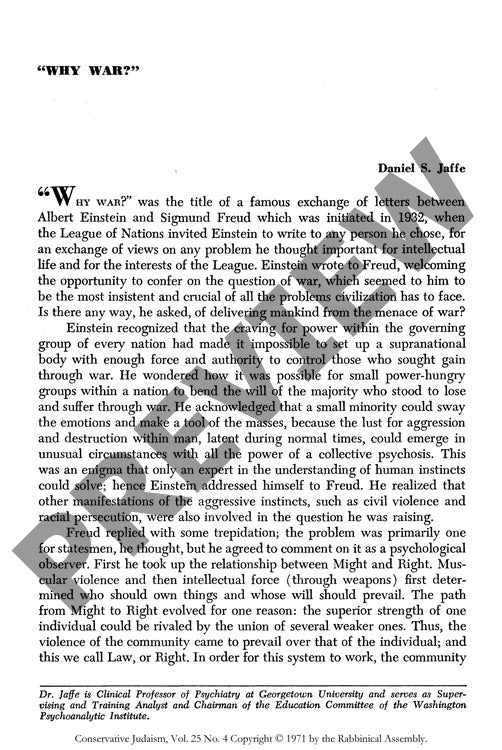Why War
Couldn't load pickup availability
The fateful 1932 correspondence between Einstein and Freud laid bare a crucial question that still haunts us: why do humans wage war? Drawing from psychoanalytic theory, clinical observations, experimental data, and psychiatric reports from the Six-Day War, a complex picture emerges of aggression's dual nature. While aggressive drives serve essential developmental functions in individuals by enabling separation and independence, they become destructive when outlets are blocked or when severe deprivation, over-control, or trauma occur. At the group level, scapegoating mechanisms redirect internal tensions toward external enemies, while mass psychology sanctions primitive urges typically suppressed in individuals. Analysis of Israeli soldiers during the Six-Day War demonstrated that strong group identification, effective leadership, and certainty of purpose significantly reduced psychiatric casualties and enabled necessary aggressive behaviors for survival, though post-war effects included guilt and loss of community connection. While innate aggressive drives persist throughout human development, the strongest motivation for peace lies in civilizing forces, particularly conscience and identification with humanity. Effective peace requires developing less destructive outlets for inevitable aggression while strengthening humanitarian identification processes that transcend tribal boundaries.

More Information
-
Physical Description
-
Publication Information
Published 1971
ISBN
-
Publication Credits

